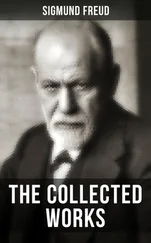In any case, affectionately yours . . I did not know what enraged him suddenly. I veered round off the couch, my feet on the floor. I do not know exactly what I had said. I have certain notes that I jotted down while in Vienna, but I never worked them over and have barely glanced at them since. I do not want to become involved in the strictly historical sequence. I wish to recall the impressions, or rather I wish the impressions to recall me. Let the impressions come in their own way, make their own sequence. “There will be plenty of memoirs about the Professor,” Walter Schmideberg said to me. “I expect Sachs and the Princess have already done theirs.”
The analyst Schmideberg spoke ironically; he was a young Austrian officer on the Russian front, in the First World War, a “captain of horses” as he described himself to me in the earlier days before his English had become so set. “Captain of horses” conveyed more to me than “cavalry officer” or “officer of the guards”; just as “needle-tree,” to which he referred one day, than “pine” or even “evergreen.” So the impact of a language, as well as the impact of an impression may become “correct,” become “stylized,” lose its living quality. It is easy to be caught, like Schmideberg, in the noose of self-criticism, it is easy to say, “Everybody will be scribbling memoirs,” but the answer to that is, “Indeed yes, but neither the Princess George of Greece nor Dr. Hanns Sachs aforetime of Vienna and Berlin, later of Boston, Massachusetts, can scribble exactly my impressions of the Professor.” Moreover, I don’t think anyone could give us a more tender, humorous account of the Professor (if he would let the impressions carry him out of himself) than the former young Rittmeister Schmideberg, who became the world’s adept at smuggling cigars to Berggasse during the darkest days of that war, and with whom the Professor kept faith during his bitter year of confinement in an Italian prison-camp, ironically after the war had ended.
So much for the Princess, Hanns Sachs, and Walter Schmideberg, the one-time Rittmeister of the 15th Imperial Austro-Hungarian Hussars of His Royal Highness, Archduke Francis Salvator. For myself, I veer round, uncanonically seated stark upright with my feet on the floor. The Professor himself is uncanonical enough; he is beating with his hand, with his fist, on the head-piece of the old-fashioned horsehair sofa that had heard more secrets than the confession box of any popular Roman Catholic father-confessor in his heyday. This was the homely historical instrument of the original scheme of psychotherapy, of psychoanalysis, the science of the unravelling of the tangled skeins of the unconscious mind and the healing implicit in the process. Consciously, I was not aware of having said anything that might account for the Professor’s outburst. And even as I veered around, facing him, my mind was detached enough to wonder if this was some idea of his for speeding up the analytic content or redirecting the flow of associated images. The Professor said, “The trouble is — I am an old man — you do not think it worth your while to love me.”
The impact of his words was too dreadful — I simply felt nothing at all. I said nothing. What did he expect me to say? Exactly it was as if the Supreme Being had hammered with his fist on the back of the couch where I had been lying. Why, anyway, did he do that? He must know everything or he didn’t know anything. He must know what I felt. Maybe he did, maybe that was what this was all about. Maybe, anyway, it was just a trick, something to shock me, to break something in myself of which I was partially aware — something that would not, must not be broken. I was here because I must not be broken. If I were broken, I could not go on here with the Professor. Did he think it was easy to leave friendly, comfortable surroundings and come to a strange city, to beard him, himself, the dragon, in his very den? Vienna? Venice? My mother had come here on her honeymoon, tired, having “done” Italy as a bride. Maybe my mother was already sheltering the child, a girl, that first child that lived such a very short time. It was the bread she talked of, Vienna and how she loved the different rolls and the shapes of them and ones with poppy-seeds and Oh — the coffee! Why had I come to Vienna? The Professor had said in the very beginning that I had come to Vienna hoping to find my mother. Mother? Mamma. But my mother was dead. I was dead; that is, the child in me that had called her mamma was dead. Anyhow, he was a terribly frightening old man, too old and too detached, too wise and too famous altogether, to beat that way with his fist, like a child hammering a porridge-spoon on the table.
I slid back onto the couch. You might say I sneaked back. With due deliberation and the utmost savoir-faire, I rearranged the rug that had slid to the floor. The couch was slippery, the head-piece at the back was hard. I was almost too long; if I were a little longer my feet would touch the old-fashioned porcelain stove that stood edge-wise in the corner. The Nürnberg Stove was a book that my mother had liked. I could not remember a single incident of the book and would not take the time to go through all the intricacies of explaining to the Professor that I was thinking of a book called The Nürnberg Stove. It was all very obvious; there was the stove, throwing out its pleasantly perceptible glow, there was the stove itself in the corner. I saw the porcelain stove and I thought of a book called The Nürnberg Stove, but why take up time going into all that, anyway?
There was the stove, but there were moments when one felt a little chilly. I smoothed the folds of the rug, I glanced surreptitiously at my wristwatch. The other day the Professor had reproached me for jerking out my arm and looking at my watch. He had said, “I keep an eye on the time — I will tell you when the session is over. You need not keep looking at the time, as if you were in a hurry to get away.” I fingered the strap of my watch, I tucked my cold hands under the rug. I always found the rug carefully folded at the foot of the couch when I came in. Did the little maid Paula come in from the hall and fold the rug or did the preceding analysand fold it, as I always carefully did before leaving? I was preceded by the Flying Dutchman; he probably left the rug just anyhow — a man would. Should I ask the Professor if everybody folded the rug on leaving, or if only I did this? The Professor had said in the beginning that he classed me in the same category as the Flying Dutchman — we were students. I was a student, working under the direction of the greatest mind of this and of perhaps many succeeding generations. But the Professor was not always right.
I did not argue with the Professor. In fact, as I say, I did not have the answer. If he expected to rouse me to some protestation of affection, he did not then succeed in doing so — the root or the current ran too deep. One day he said, “Today we have tunneled very deep.” One day he said, “I struck oil. It was I who struck oil. But the contents of the oil wells have only just been sampled. There is oil enough, material enough for research and exploitation, to last fifty years, to last one hundred years — or longer.” He said, “My discoveries are not primarily a heal-all. My discoveries are a basis for a very grave philosophy. There are very few who understand this, there are very few who are capable of understanding this.” One day he said to me, “You discovered for yourself what I discovered for the race.” To all that, I will hope to return later. At the moment, I am lying on the couch. I have just readjusted the rug that had slipped to the floor. I have tucked my hands under the rug. I am wondering if the Professor caught me looking at my wristwatch. I am really somewhat shattered. But there is no answering flare-back.
Читать дальше











